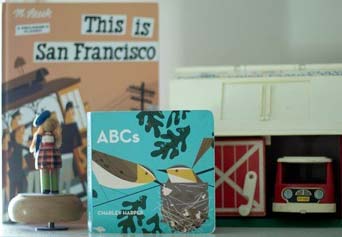The second in a sponsored series on reading & education
Thursday, 18 June 2020
Fantastic Reads on Classical Education

By the time most of us turned four years of age, some of our parents had already started educating us in a classical manner of speaking. They, and even ourselves, may not have even known it. Classical education is made up of three different stages of learning.
- In the grammar stage, the learner acquires the foundation of furthermore complex learning. At this stage, he or she is usually absorbing information
- In the logic stage, the learners develop on the basic, and they can typically think via arguments
- In the rhetoric stage, the learner can articulate their own arguments coherently.
Classical education is based on the biological nature of brain development. The early years are predominantly linguistic, as students are continually learning facts. Consequently, memorization is a significant aspect of this stage. Nevertheless, it is reasonably fun exercise for most children.
The learner’s brain in the middle stage can think analytically and sufficiently abstract. Therefore, students want to understand more than just the facts. The “why?” question is quite prevalent. The brain, at this level, pursues a logical perspective to establish causal relationships between different concepts and disciplines.
The rhetoric stage is a culmination of the previous stages. The student applies the formerly acquired language skills and logical thinking to construct their own insights. This is also the stage where specialization begins. By this time, the learner often has an idea of the particular fields to which they are drawn.
The organic progression of classical education makes it an ideal model to impart knowledge on young minds. In such a way that the learner develops their language and image learning abilities progressively, each building on the subsequent.
In this article, we shall look at some of the written works on classical education that stand out. Ones that are undoubtedly thought-provoking.
The Well-Trained Mind

This piece, by Susan Wise Baber and Jessie Wise, is more of a guidebook. While it does not go into philosophical depths, it does a tremendous job of explaining how to educate classically. If you are looking for a book that will show you the vision of classical education, and how to go about it, then this is certainly the book for you.
As a matter of fact, it is highly acclaimed in the UK essay writing circles for classical education references. You can rest assured it will show you exactly how learners can benefit from this model.
Teaching the Trivium
The three stages of classical education are commonly referred to as the Trivium. This book captures the essentials of homeschooling children while still imparting classical education. Teaching the Trivium promotes a laid-back environment for learning. The author posits that the current education system laden burden young learners with advanced academics, such as math.
This book is an ideal complement to The Well-Trained Mind. It will undoubtedly provide a discrete comparison of thought and ideology.
Designing Your Own Classical Curriculum
This book will aptly guide you through developing an effective curriculum for potential learners. The author, Laura Berquist, goes into great detail to show you how to design it appropriately. She breaks down the process into small manageable objectives that will significantly help you to formulate a classical curriculum that is beneficial to all pertinent parties.
The Latin-Centered Curriculum
If you have read The Devil Knows Latin, then this book is a must-read. In the former, the author believes that eliminating Latin and Greek from the curriculum has considerably withered the nation’s ties with its own culture.
In the Latin-Centered Curriculum, the author provides the significance and relevance of including Latin back in the system. The book undoubtedly has a philosophical approach, which also expounds on how to educate classically.
Simply Classical
The general opinion would seem to suggest that classical education is mainly geared towards gifted kids. The author of this book disagrees vehemently. Cheryl Swope narrates and elaborates on how her family applied classical education to teach kids with special needs. She unequivocally believes that classical education can be applied to any child.
Consider This
This book, by Charlotte Manson, is unlike the other entries in this article. It hardly touches on the philosophical narrative, and neither does it guide you. On the contrary, it looks to clear out any questions or doubts you may have about classical education. To put it simply, it is a book on the classical tradition.
If you are genuinely curious about classical education, these books are arguably an ideal place to start. Moreover, they are all fantastic reads!
See also
Physical Books vs. PDFs: Which are Better for Education?
Does the Type of Books determine the Level of Education you will attain?
A Top Book Platform for Academic Success
Fantastic Reads on Classical Education
Books on Education you ought to read
What Types of Books do we need for Our Education? Here are Some Tips!
Sponsored news item for the HebWeb
See also: HebWeb Where to Stay section

